Areas of Parallelograms and Triangles
In ∆ ABC, AD is the perpendicular bisector of BC (see figure). Show that A ABC is an isosceles triangle in which AB = AC.
Given: In ∆ ABC, AD is the perpendicular bisector of BC.
To Prove: A ABC is an isosceles triangle in which AB = AC.
Proof: In ∆ ADB and ∆ADC,
∠ADB = ∠ADC | Each = 90° DB = DC
| ∵ AD is the perpendicular bisector of BC
AD = AD | Common
∴ ∆DB ≅ ∆ADC | By SAS Rule
∴ AB = AC | C.P.C.T.
∴ ∆ABC is an isosceles triangle in which AB = AC.
Sponsor Area
Some More Questions From Areas of Parallelograms and Triangles Chapter
AD and BC are equal perpendiculars to a line segment AB (see figure). Show that CD bisects AB.
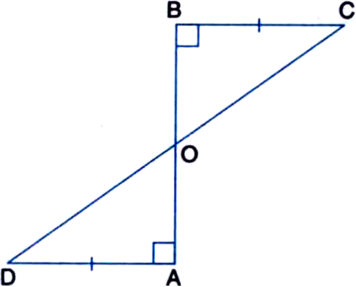
I and m are two parallel lines intersected by another pair of parallel lines p and q (see figure). Show that ∆ABC ≅ ∆CDA.

Line I is the bisector of an angle ∠A and B is any point on I. BP and BQ are perpendiculars from B to the arms of ∠A (see figure). Show that:
(i) ∆APB ≅ ∆AQB
(ii) BP = BQ or B is equidistant from the arms of ∠A.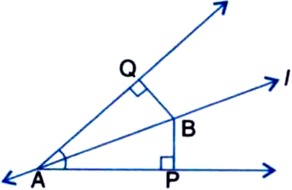
In figure, AC = AE, AB = AD and ∠BAD = ∠EAC. Show that BC = DE.
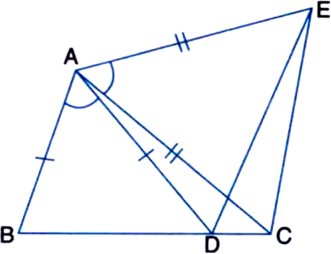
AB is a line segment and P is its mid-point. D and E are points on the same side of AB such that ∠BAD = ∠ABE and ∠EPA = ∠DPB (see figure). Show that.
(i) ∆DAP ≅ ∆EBP
(ii) AD = BE.
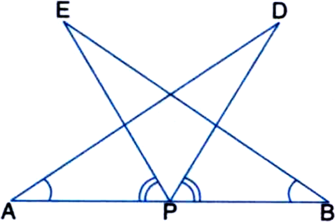
In figure, PS = QR and ∠SPQ = ∠RQP. Prove that PR = QS and ∠QPR = ∠PQS.

In figure, AP and BQ are perpendiculars to the line-segment AB and AP = BQ. Prove that O is the midpoint of line segments AB and PQ.
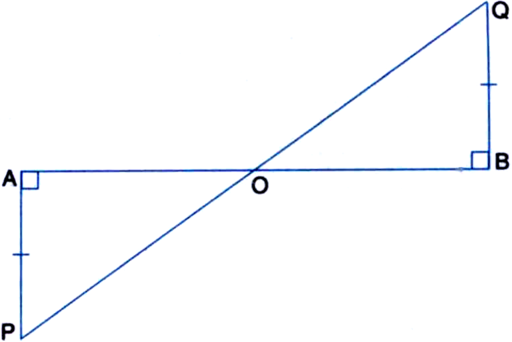
In figure, diagonal AC of a quadrilateral ABCD bisects the angles A and C. Prove that AB = AD and CB = CD.
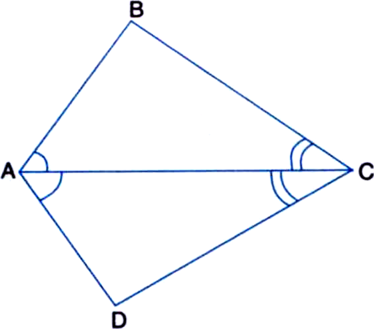
AB is a line-segment. AX and BY are two equal line-segments drawn on opposite sides of line AB such that AX || BY. If AB and XY intersect each other at P. Prove that:
(i) ∆APX ≅ ∆BPY
(ii) AB and XY bisect each other at P.
Mock Test Series
Sponsor Area
NCERT Book Store
NCERT Sample Papers
Sponsor Area